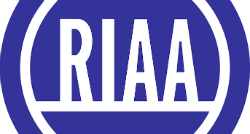 In the wake of the RIAA’s effort to have ripping tool youtube-dl removed from Github, YouTube-ripping service Yout.com went on the offensive.
In the wake of the RIAA’s effort to have ripping tool youtube-dl removed from Github, YouTube-ripping service Yout.com went on the offensive.
In a complaint filed at a Connecticut court, Yout argued that previous actions by the RIAA against its service, including the delisting of its homepage from Google based on the allegation that Yout circumvented YouTube’s ‘rolling cipher’ technology, were wrongful and damaged its business.
RIAA Fights Back
As reported in January, the RIAA presented a robust response in a motion to dismiss, noting that just because Yout had “figured out” how to defeat the YouTube rolling cipher, that did not make the Technological Protection Measure (TPM) any less eligible for protection under section 1201 versus one that could not be defeated.
“Plaintiff concedes that it ‘encounters’ the rolling cipher and then ‘reads and interprets the JavaScript program’ and ‘derives a signature value’ to access the file,” the RIAA wrote.
“The only reasonable inference to draw from those vague allegations is that the Yout service enables users to avoid or bypass that technological measure—that is the very definition of circumventing a TPM under section 1201.”
Furthermore, in response to Yout’s claims that the RIAA must’ve known that the service did not circumvent technical measures and therefore shouldn’t have filed DMCA notices against it, the RIAA pointed out that under 17 U.S.C. § 512(f), only misrepresentations regarding alleged copyright infringement are available, not misrepresentations regarding alleged circumvention.
Yout’s Opposition to RIAA’s Motion to Dismiss
In Yout’s latest response, the stream-ripping service reiterates that it does not decrypt, bypass or avoid any measures on YouTube as the necessary information to access streams is freely available to anyone who seeks it. Yout describes that as essentially a “copy/paste” scenario, as provided for by any online content stream.
Yout’s Mere Use of the Signature Value Does Not Violate 17 USC §1201
The company says that the words “avoid” and “bypass” suggest ‘abuse’, countering that what its service actually does it ‘use’ a technological measure, which is an entirely different matter. Citing an earlier case involving DISH Network, Yout says that by utilizing the intended mechanism for decryption, no bypassing, avoidance or bypassing of a system took place.
“Here, the methodology employed by Yout is analogous. Yout utilizes the same signature value freely distributed by any video-sharing website, such as YouTube. This is the exact same signature value that appears to any web browser,” Yout’s response reads.
“Yout need not decrypt, bypass, or avoid anything as these signature values are freely given, and Yout uses the value, not in any cryptic way, but just as it is provided by any video-sharing website to anyone that requests it.
“Anyone can access and use the signature value of any free streaming content’s [sic] using only a browser, without other software, youtube-dl, the Yout service, or any similar tool,” Yout writes.
RIAA has not Identified any Copyrighted Works at Issue
Running with the claim that Yout does not circumvent any effective technological protection measure, the company says that the requirement that circumvention takes place without the permission of the copyright holder is not reached. However, the fact remains that the RIAA has failed to identify any copyrighted works that have allegedly been infringed.
“To prove a violation of § 1201, Defendant’s members must show not only circumvention but that the circumvention results in access to a copyrighted work. However, nothing in the RIAA’s notices references ownership of any specific copyrighted work purportedly protected by the rolling cipher,” Yout’s response reads.
Yout acknowledges that case law potentially raises complications but reminds the Court that the RIAA’s notices clearly accuse Yout of facilitating copyright infringement, specifically contributory copyright infringement. This leads Yout to raise the issue of misrepresentations in the RIAA’s DMCA notices and the music group’s claim that under 17 U.S.C. § 512(f), penalties are only available for misrepresentations regarding alleged copyright infringement.
Settlement Conference Has Been Scheduled
After Yout asked the Court to reject the RIAA’s motion to dismiss, United States Magistrate Judge Robert A. Richardson reported that a video settlement conference had been arranged for May 5, 2021, with both parties ordered to attend.
The Judge’s order requires Yout to have someone attend with full and final authority to dismiss the case with prejudice and to accept any settlement amount or offer. The RIAA must be represented by someone with the authority to commit to a settlement amount.
“The purpose of this requirement is to have in attendance a person with both the authority and independence to settle the case during the settlement conference without consulting anyone not present,” the order reads.
Not less than 14 days before the conference date, the parties are required to begin negotiating the terms of any settlement.
Yout’s Response to RIAA’s Motion to Dismiss / Conference Order here and here (pdf)





